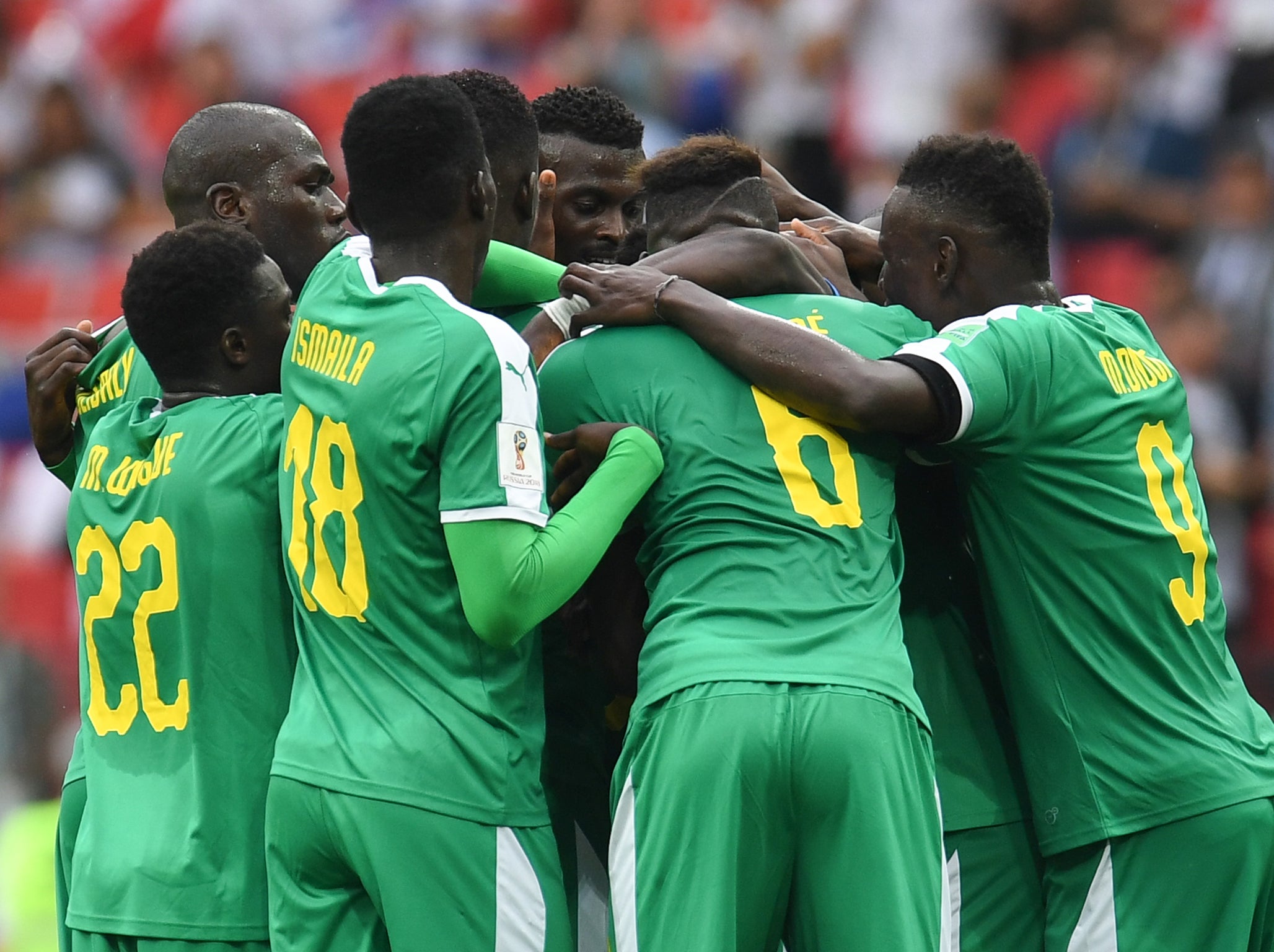World Cup 2018: How cerebral Senegal are helping to dispel some of football’s laziest stereotypes

Your support helps us to tell the story
From reproductive rights to climate change to Big Tech, The Independent is on the ground when the story is developing. Whether it's investigating the financials of Elon Musk's pro-Trump PAC or producing our latest documentary, 'The A Word', which shines a light on the American women fighting for reproductive rights, we know how important it is to parse out the facts from the messaging.
At such a critical moment in US history, we need reporters on the ground. Your donation allows us to keep sending journalists to speak to both sides of the story.
The Independent is trusted by Americans across the entire political spectrum. And unlike many other quality news outlets, we choose not to lock Americans out of our reporting and analysis with paywalls. We believe quality journalism should be available to everyone, paid for by those who can afford it.
Your support makes all the difference.At the start of this World Cup, Aliou Cisse and his Senegal players probably didn’t think they would have to deal with questions about a racist tweet from the presenter of the Apprentice. Or, if they did, probably not the UK Apprentice.
Alan Sugar’s apology for his suggestion that the Senegalese players sold sunglasses on the beach even reached the upper-echelons of the country’s government, quite satisfyingly given short shrift by an advisor to the Senegalese president - which frankly is a curious sentence to write.
Not that Senegal’s players themselves will have bothered about the whole thing too much. They’re presumably too busy being delighted at their start to the World Cup, having beaten Poland 2-1 in their first game. Of course, they were fortunate to a point with their goals, one a colossal deflection the other a smart finish after jumping on an accumulator of bone-headed errors.
But the scoreline flattered the Poles, who lost partly because they were limp, lifeless and as Robert Lewandowski admitted afterwards, didn’t really seem to be talking to each other. But they also lost because Senegal didn’t allow them to be anything else.
Cisse’s men outclassed and out-thought Poland. They were smarter in midfield, where Idrissa Gueye and Alfred N’Diaye gave Grzegorz Krychowiak the sort of afternoon that would make many a man jack this football caper in for something less stressful. They were sharper in attack, where M’Baye Niang’s nimble thinking to score the second goal contrasted starkly with the lumbering Lewandowski.
In short, it was a controlled performance, cerebral even, a victory from clearer heads rather than particularly any significant physical advantage.
And it was the sort of game that you might hope will dispel the standard stereotypes about African teams. You’ll be familiar with the language generally used as a default when discussing black players: primarily defined by strength, pace, power, general athleticism etc, rarely their skill or mental processes. If you’re somehow not cognisant of this sort of thing, on SB Nation Zito Madu gave a quick rundown of the sort of words deployed, including a bingo card of key phrases to watch out for.
At the absolute best it’s reductive, a lazy way of referring to a set of players you don’t know much about, at worst something far more sinister. Ideally these ideas and words should have been phased out long ago, but alas they remain. Hopefully though, particularly if they continue this way as they move through the tournament, Senegal’s performance might go some way to dispelling these stereotypes.
Perhaps that’s being too optimistic, but we’re often told that football can be a catalyst for wider things, that it can change society. Maybe it can alter this too. Particularly if they play in a similar fashion against Japan.
Where Senegal have been calm and controlled, Japan’s path to the World Cup has been a little more chaotic. Two months before the tournament began, manager Vahid Halilhodzic was ruthlessly dismissed, replaced by Akira Nishino as an “emergency measure”, an emphasis on attacking, rapid football apparently the motivation.

Halilhodzic steered Japan through a rather rocky qualification campaign, illustrated by fact the national FA assigned him a “go-between” when, following a defeat to the UAE, he banned the squad from smiling. Nevertheless, it was decided that relative chaos was preferable to him continuing, a move that looked from the outside at least like minor madness.
But after Japan beat Colombia in their opener, it perhaps indicates that serenity and steady planning is overrated. Spain haven’t seemed overly perturbed by their late coaching switch, and should Japan cause an upset by progressing it may prove that, in the World Cup, chaos is king and logic has no place here.
Join our commenting forum
Join thought-provoking conversations, follow other Independent readers and see their replies
Comments